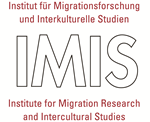Overview: Forced Migration and Refugee Studies in Germany
New poster presents key ideas and central project findings in English, , Osnabrück / Bonn
In recent years, Germany witnessed massive growth in refugee and forced migration research. The number of research projects increased fivefold between 2013 and 2016.
The research project „Forced Migration: Research and Transfer“ [Flucht: Forschung und Transfer (FFT)] analyses the state-of-research in eleven reports on sub-themes of refugee and forced migration studies as well as comprehensive data on 511 research projects (620+, June 2018) that were conducted in Germany since 2011.
Thus, we can determine that the research field in Germany is decentralized and multi-disciplinary. However, it is much focused on issues of refugee integration and geographically, on Europe and specifically on Germany (see illustrations in our poster).
As a trend, the topical and geographic foci were amplified over the years. By 2016, „integration“ made up over 50% of topics and only 20% of projects conducted research without reference to Germany. At the same time funding, specifically external funding increased (see illustrations in our poster).
In the future, the research field will have to consolidate while maintaining its network character, extending and deepening its international networks, and broadening its research focus.
The project „Forced Migration: Research and Transfer“ is conducted by Bonn International Center for Conversion (BICC) and the Institute for Migration Research and Intercultural Studies (IMIS), University of Osnabrück, and funded by the Federal Ministry of Education and Research (BMBF).
Poster about the Project and some of its key findings (PDF in English)







